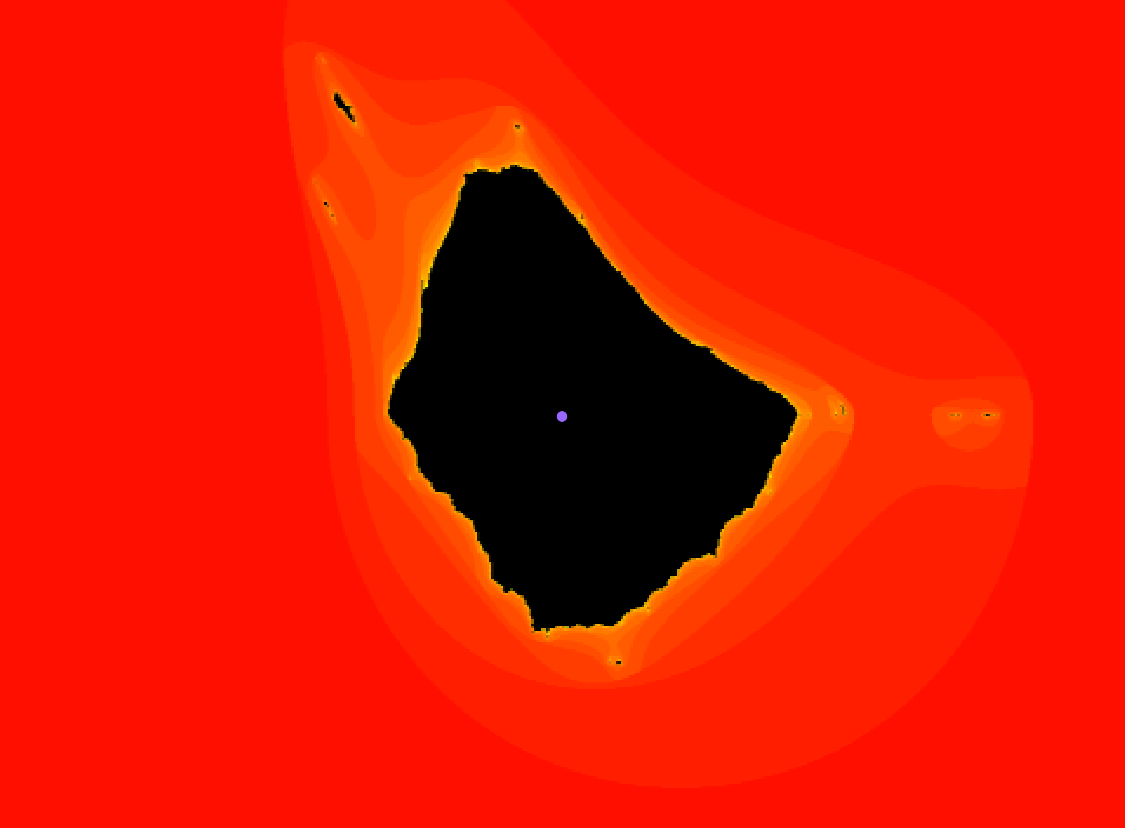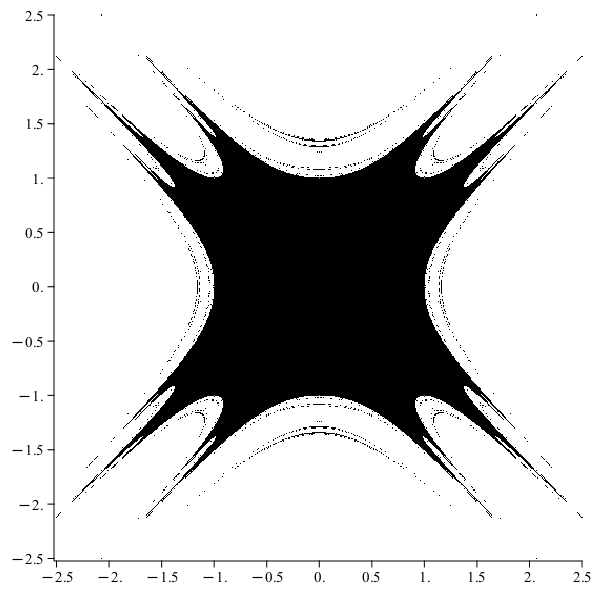Let $F$ be the dynamical system $(x,y)\mapsto(y,y^2-x^2)$. The orbit of any point
$(x,y)$ with $|x|,|y|<1$ converges to the origin. In particular, the
sequence $\{s_n\}_{n=0}^\infty$ converges to $0$ if $s_0<1$.
Proof) Fix $x_0,y_0\in (-1,1)$. Denote the elements of its orbit under $F$ by $(x_n,y_n):=F^{\circ n}(x_0,y_0)$. We shall show that
$\lim_{n\to\infty}x_n=\lim_{n\to\infty}y_n=0$.
Pick an arbitrary number $a$ from $\big(\max(|x_0|,|y_0|),1\big)$. Thus $|x_0|,|y_0|<a$. Now let $\epsilon$ be an element of $\left(\max\left(\sqrt{a},\frac{|y_0|}{a}\right),1\right)$. Hence $|y_0|<\epsilon a$, and $a<\epsilon^2$. I use induction to show that $|x_n|\leq\epsilon^n a$ and $|y_n|\leq\epsilon^{n+1}a$ for any $n\geq 0$. This will clearly yield the desired limits. The base of the induction, the case of $n=0$, holds because of the way we chose $\epsilon$ and $a$. Suppose the induction hypothesis holds: $|x_n|\leq\epsilon^n a, |y_n|\leq\epsilon^{n+1}a$ for some $n\geq 0$. Next, we have $(x_{n+1},y_{n+1})=(y_n,y_n^2-x_n^2)$. Thus:
$$
\begin{split}
&|x_{n+1}|=|y_n|\leq\epsilon^{n+1}a,\\
&y_{n+1}\leq y_n^2\leq\epsilon^{2n+2}a^2\stackrel{\text{due to }\epsilon,a<1}{<}\epsilon^{n+2}a,\\
&y_{n+1}\geq -x_n^2\geq -\epsilon^{2n}a^2\stackrel{\text{ due to }\epsilon<1\text{ and }a<\epsilon^2}{>} -\epsilon^{n+2}a.
\end{split}
$$
We conclude that $|x_{n+1}|\leq\epsilon^{n+1}a$ and $|y_{n+1}|\leq\epsilon^{n+2}a$.
Finally, notice that terms of the sequence $\{s_n=s_n(x)\}_{n=0}^\infty$ satisfy $F(s_{n-1},s_n)=(s_n,s_{n+1})$. Consequently, $(s_{n-1},s_n)\to(0,0)$ if $(s_0=\sqrt{x},s_1=x)$ lies in $(-1,1)^2$.
$\quad\blacksquare$


